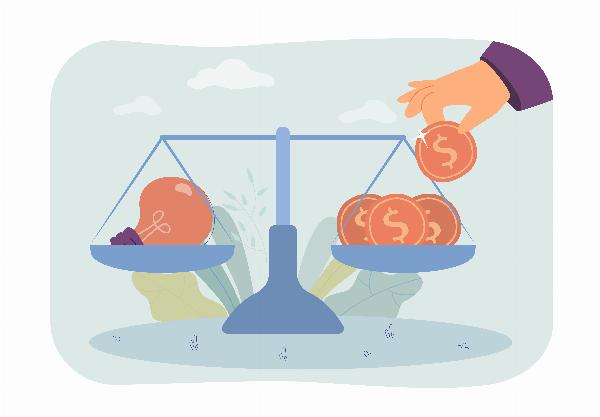Fostering Inclusive Growth with Progressive Minimum Wage Policies

Economic growth and social development are two pillars defining any region's prosperity. Karnataka, one of India's most dynamic states, has been at the forefront of progressive policies that balance these twin goals. One of the most critical aspects of this balancing act is the state's approach to minimum wage regulation, which ensures that businesses and workers thrive in a mutually beneficial environment. Through its forward-thinking policies, Karnataka has sought to foster inclusive growth by ensuring fair wages across industries, sectors, and social classes.
The state's minimum wage policies are more than just a regulatory mechanism; they promote equity, reduce poverty, and ensure economic development reaches all corners of society. By examining Karnataka's progressive minimum wage policies, we can understand how such measures can foster an environment where inclusive growth is not just a goal but a reality.
The Structure of Minimum Wage Regulations in Karnataka
Karnataka's minimum wage structure is determined by factors that consider regional diversity, industrial sectors, and the cost of living. The state government frequently revises the wage structure to ensure it syncs with current economic conditions and inflationary trends. These revisions aim to create an ecosystem where workers receive compensation that allows them to lead a dignified life while businesses are not overburdened.
- Region-Specific Wages: Given Karnataka's geographical and economic diversity, the state has divided the regions into different zones for wage determination. These zones, ranging from highly urbanized areas like Bengaluru to more rural districts, allow for wage policies that reflect the economic realities of each region.
- Sectoral Wages: Karnataka's minimum wage policies are also sector-specific, ensuring that industries such as agriculture, construction, manufacturing, and services have tailored wage guidelines. This differentiation helps address various industries' specific needs and challenges, ensuring that workers in traditionally underpaid sectors are included.
- Periodic Adjustments: The state regularly revises its minimum wage policies to keep up with inflation and the cost of living. This ensures wages remain relevant and gives workers the purchasing power necessary to meet their basic needs.
The Impact of Minimum Wage Policies on Inclusive Growth
The minimum wage policies in Karnataka are designed to protect workers and fuel broader economic growth. By ensuring that workers have adequate purchasing power, these policies stimulate demand for goods and services, boosting the overall economy.
1. Poverty Alleviation
One of the most direct outcomes of an effective minimum wage policy is poverty alleviation. By ensuring that workers earn a living wage, the state has made significant strides in lifting a substantial portion of its population out of poverty. Workers with disposable income can invest in education, healthcare, and better living conditions, improving overall quality of life. This aligns with Karnataka's broader goal of inclusive growth, where economic benefits are not restricted to a few but are distributed equitably across all sections of society.
2. Empowering Workers in Informal Sectors
A significant portion of Karnataka's workforce is engaged in the informal economy, where wage exploitation is rampant. The state has made strides in bringing informal workers into the fold of formal labor protections through stringent implementation of minimum wage laws.
For example, sectors like domestic work, agriculture, and construction, which are traditionally under-regulated, now fall under the ambit of minimum wage regulations. By ensuring that workers in these sectors are paid a fair wage, the government has empowered one of the most vulnerable segments of the workforce.
3. Economic Stability and Reducing Wage Disparities
A key feature of Karnataka's wage policies is that they aim to reduce wage disparities across different sectors and regions. Historically, the wage gap between urban and rural areas and between skilled and unskilled workers has been a significant issue. Karnataka's progressive minimum wage policies have helped to narrow this gap. The state has mitigated income inequality and promoted economic stability by setting a baseline wage that applies across industries.
4. Enhancing Labor Productivity
Fair compensation ensures that workers' rights are protected and leads to higher productivity. Workers who feel valued and fairly compensated are more likely to be engaged and motivated, leading to increased efficiency and lower turnover rates. Karnataka's wage policies, which ensure that workers are adequately compensated, have contributed to a more motivated and productive workforce. This, in turn, has benefited businesses, leading to higher profitability and growth.
Role of Minimum Wage Policies in Karnataka's Social Development
The social impact of Karnataka's minimum wage policies is just as important as its economic impact. These policies have been instrumental in fostering social equality and promoting the welfare of marginalized communities.
1. Uplifting Marginalized Communities:
Karnataka's minimum wage regulations have been particularly beneficial for marginalized communities, such as Dalits, tribals, and women, who have historically been subjected to wage discrimination. By enforcing equal pay for equal work, regardless of caste, gender, or social background, the state has taken a significant step toward achieving social justice.
2. Promoting Gender Equality:
One critical aspect of Karnataka's wage policies is that they address gender-based wage disparities. The state has stringent laws to ensure that women receive the same wages as their male counterparts for the same work. In a state where women constitute a substantial portion of the workforce, particularly in sectors like textiles, agriculture, and domestic work, this has had a transformative effect on women's economic empowerment.
Challenges and Criticisms of Karnataka's Minimum Wage Policies
Despite Karnataka's many successes, its minimum wage policies are challenging. One significant criticism is that enforcement remains inconsistent, particularly in the informal sector. While the legal framework is robust, ensuring compliance has been difficult in areas where labor unions are weak, and workers are less aware of their rights. Many workers, especially in rural areas, still struggle with wage violations, and some employers flout the law by offering lower wages or delaying payments.
Another challenge is the perception that minimum wage increases could harm businesses, particularly small and medium enterprises (SMEs), which may need help to absorb the increased labor costs. Critics argue that higher wages could lead to job losses as companies may reduce their workforce to manage costs. However, proponents of the policy maintain that the benefits of increased wages—such as higher worker morale, lower turnover, and increased consumer spending—far outweigh the potential drawbacks.
The Future of Minimum Wage Policies in Karnataka
The future of Karnataka's minimum wage policies seems poised for continued evolution. With the rise of the gig economy and the changing nature of work, the state must adapt its wage regulations to cater to new forms of employment. Gig workers, who often lack the protections of formal employment, are a growing segment of Karnataka's workforce. The state is already considering ways to bring gig workers under wage regulations, ensuring they receive fair compensation and labor rights.
Moreover, as the cost of living rises, periodic revisions to minimum wages will become even more critical. The state government must balance providing workers with adequate wages and ensuring that businesses remain competitive.
In addition to updating wage policies, Karnataka is also focusing on improving enforcement mechanisms. By strengthening labor inspections and ensuring that workers know their rights, the state aims to address the challenges of wage violations and non-compliance.
Conclusion
Karnataka's progressive approach to minimum wage policies has fostered inclusive growth and social development. By ensuring that all workers receive fair compensation, regardless of their sector or background, the state has laid the foundation for a more equitable society. While challenges remain, particularly in enforcement and balancing the interests of businesses and workers, Karnataka's commitment to social justice and economic stability is evident in its minimum wage policies.
The road ahead may be filled with challenges. Still, with continued focus and adaptation, Karnataka can continue to lead by example, showing that minimum wage policies can be a powerful tool for achieving economic and social progress. Through regular updates to the policy and improved enforcement mechanisms, the state can ensure that all sections of society feel the benefits of these policies, contributing to the state's broader goal of inclusive growth.
Note: IndiBlogHub features both user-submitted and editorial content. We do not verify third-party contributions. Read our Disclaimer and Privacy Policyfor details.







